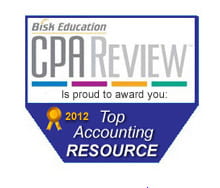The Stock Market in 2011 and the Presidential Cycle
Recently both Warren Buffett and Charlie Munger of Berkshire Hathaway, along with highly regarded economists Nouriel Roubini, Robert Shiller, and Martin Feldstein have expressed their concern about the slow pace of the ongoing economic recovery from the most severe recession, in both length of time and depth of decline, since the 1930’s. They have also mentioned the risk of a “double-dip” recession.
However, Warren Buffett on many occasions has stated that his outlook for the economy does not indicate what direction the stock market is likely to follow. As a “bottoms up” investor, Mr. Buffett focuses on identifying undervalued investments, and not on the timing of those purchases. Despite the outlook for relatively weak economic growth in the near future, the performance of the stock market in 2011 may outperform the current expectations of many based on historical precedent – namely, the “Presidential Cycle”.
A table on page 2 of the 2009 Berkshire Hathaway Annual Report displays a series of annual returns to the S&P 500 (including dividends). Over the 45 year period from 1965 – 2009 shown on this table, the compounded annual return to the S&P 500 has equaled 9.3%. However, in the 8 instances over this time period, in the third year of a president’s first term, the average annual total return to the S&P 500 has equaled 27.5%, with a range from 18.2% in 1979 to 37.6% in 1995. In the three cases of a Democrat in the White House (Johnson 1967, Carter 1979, and Clinton 1995) the average gain for the third year of their presidency was 28.9%. With Republicans in the White House (Nixon 1971, Ford 1975, Reagan 1983, George H.W. Bush 1991, and George W. Bush 2003) the average gain was 26.7%.
Is this observation just a statistical oddity, or is there a good explanation? One possible explanation of the “third year effect of a presidential cycle” is the desire of the incumbent to be re-elected. Since the state of the economy on election day is a major determinant of whether an incumbent president keeps his job, a stimulative fiscal policy (and sometimes an accompanying stimulative monetary policy) can be expected. Since the stock market forecasts future economic conditions, it would not be too surprising to see it rise in the year before the President seeks re-election. If this trend is to continue, in 2011, which is the third year in President Obama’s term, the stock market may do very well.





Nice information about stock market index..Stock market index is really volatile. Nobody knows where will it go???